Trang An Landscape Complex: Discover Vietnam’s Breathtaking UNESCO Site
Trang An Landscape Complex, a UNESCO World Heritage Site, is one of Vietnam’s most breathtaking attractions. This natural beauty, which is in Ninh Binh province, attracts tourists with its amazing karst settings, magical cavernues, and rich vegetation. Both residents and visitors value this multifarious site for its natural beauty as well as historical and cultural value. Let’s explore this most unique legacy complex with MOTOGO Tours.
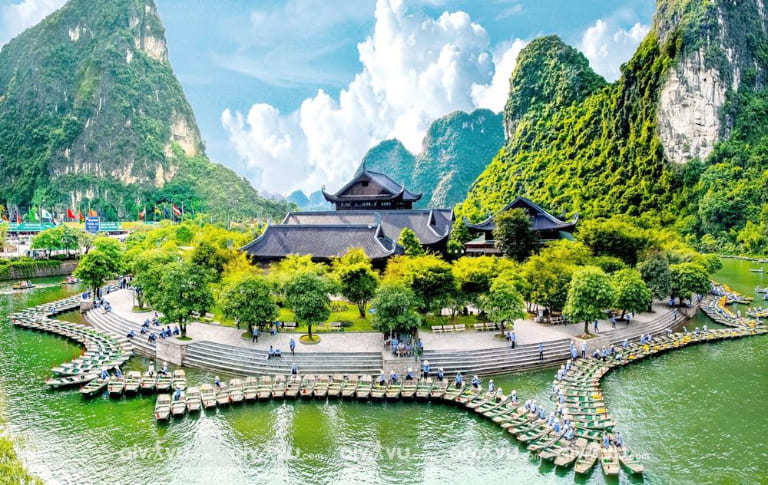
Why Trang An is a Must-Visit Destination
Trang An is a trip back in time rather than only another beautiful location. As guests glide down the calm rivers, its network of rivers and tall limestone karsts presents a fantastic experience. Approved by UNESCO for both natural and cultural qualities, Trang An is indeed a world-class location. Its importance beyond the beauty of the area since it combines human legacy with geological change, therefore reflecting its development.
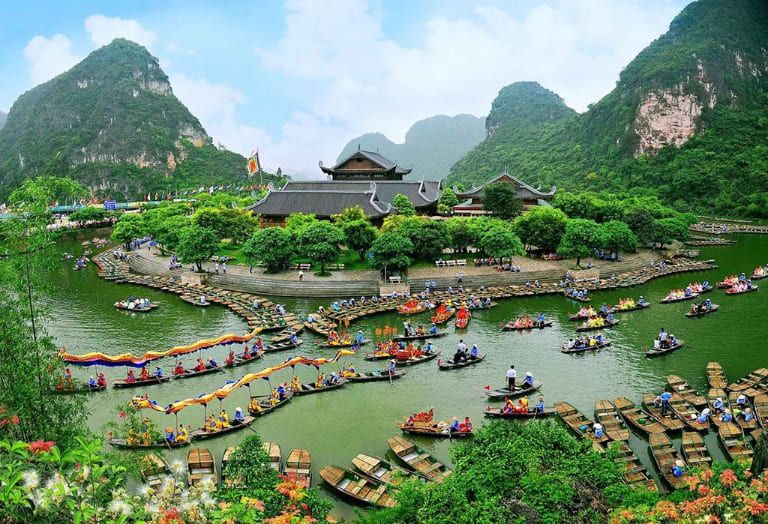
The Trang An Landscape Complex is accessible from roughly 100 kilometers south of Hanoi/ Given the two-hour journey from Hanoi, this day trip is rather popular. If you would want to delve further, a weekend trip will let you discover every secret corner of this breathtakingly beautiful complex.
Discover the Impressive Trang An Scenic Complex
Situated in Hoa Lu District, Ninh Binh Province, the Trang An Scenic Complex has an amazing 6,172 hectares, encircled by a buffer zone of 6,268 hectares mostly comprising of rice fields and traditional villages.
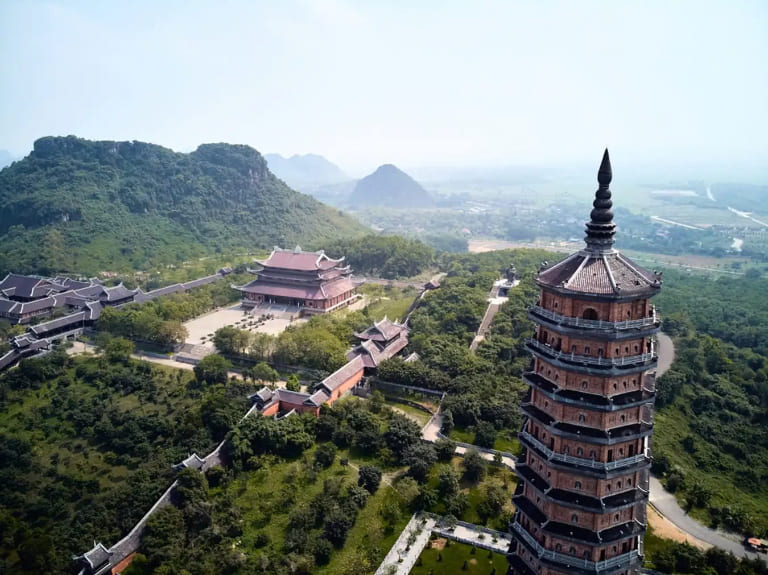
Officially identified by UNESCO as the first and only dual World Heritage Site in Southeast Asia, the Trang An Scenic Complex gained a prominent place on the global travel scene in 2014. It is thus a must-see location in Vietnam since the Vietnamese government has also declared it as a national relic of great significance.
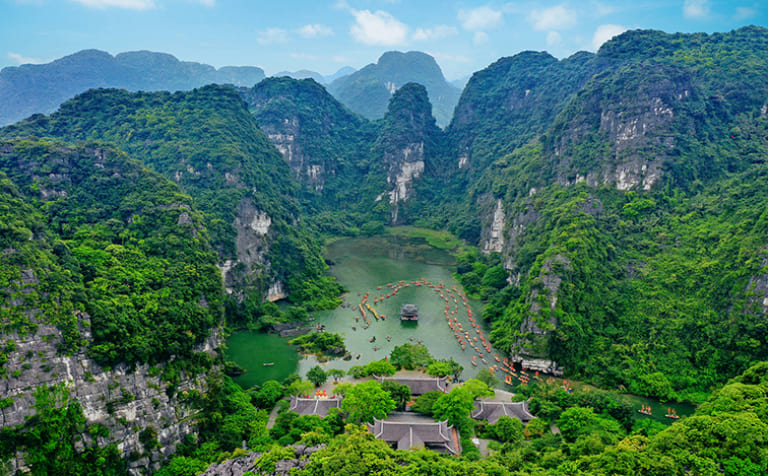
>>> Explore the Rich History of World Heritage Sites in Vietnam
When Is the Best Time to Visit Trang An Scenic Complex?
If your Ninh Binh journey to Trang An is scheduled, take lunar calendar consideration going between January and March. Ideal for a complete appreciation of Trang An’s natural beauty, Ninh Binh experiences calm, mild weather with little rain during this spring.
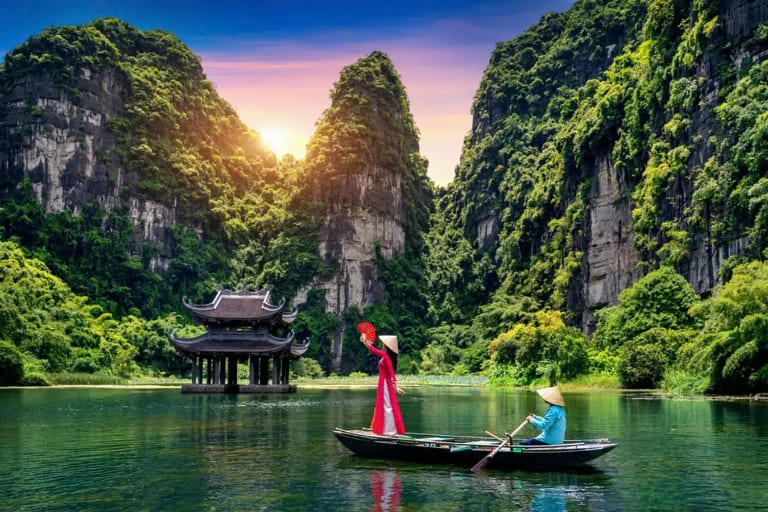
Along with many classic celebrations at the Trang An Scenic Complex, this season offers guests an opportunity to savor the local celebratory mood and fully engage in the energetic local cultural legacy.
How to Get to Trang An Scenic Complex
Trang An is located less than 100 km from Hanoi, making it easily accessible by various means. Usually starting in Hanoi, most guests ride bus, train, or motorbike to Ninh Binh. If you are from central or southern Vietnam, buses, trains, and planes provide practical means of getting to the region.
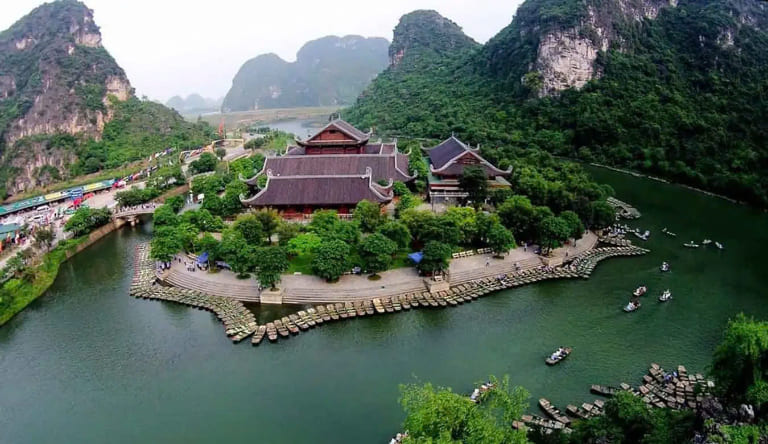
Why Is the Trang An Scenic Complex So Popular?
Featuring archeological sites spread over three nearby areas—the Trang An – Tam Coc – Bich Dong Scenic Area, the Hoa Lu Ancient Capital with historical links to the Dinh dynasty, and the Hoa Lu Special-Use Primary Forest—Trang An is a harmonic mix of natural and cultural components. Come discover with us the captivating characteristics of Trang An!
Trang An Ecotourism Area – A Majestic Maze
Situated just 7km from Ninh Binh city center, the Trang An Ecotourism Area is a national treasure with a large network of caves, limestone mountains, and a rich ecology entwined with historical sites from the ancient kingdom of Dai Co Viet. This location features a magnificent watercolor-like scene that has enthralled guests for ages thanks to its 31 lakes and ponds linked by 48 caverns.
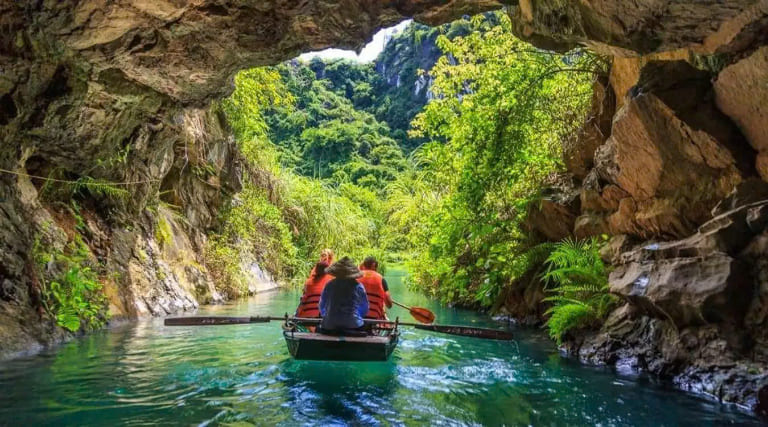
Apart from the inherent structures, the area boasts cultural sites such the Vu Lam Imperial Palace, Tran Temple, and Trinh Temple. Should you visit during the local festival, which falls on March 17–19 (lunar calendar), you will be part of the Trang An Festival, in which residents worship Cao Son and Quy Minh gods with customary activities and sports.
Tam Coc – Bich Dong
Tam Coc-Bich Dong, a part of the Trang An Scenic Complex, is well-known for its twenty picturesque locations including old limestone mountains, magical cavernues, and verdant surroundings. Early in the year, guests can tour nearby pagodas, take boat trips, and fully experience lively festival celebrations. The golden tint of the area’s rice fields turns late May and early June into a charming and poetic image as it combines with the green mountains and blue sky.
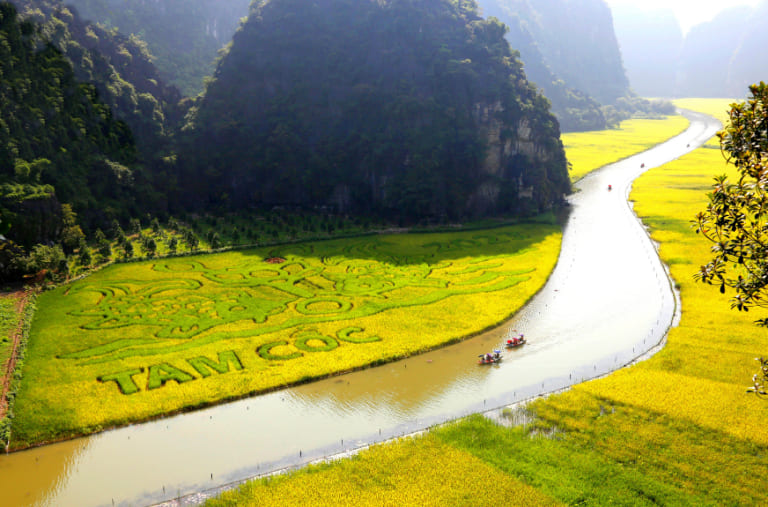
Hoa Lu Ancient Capital
With more than 1,000 years of legacy, the ancient Hoa Lu Ancient Capital links to Vietnam’s Dai Co Viet monarchy. Enclosed in a natural setting of mountains and lakes, the old city presents a serene environment. Along walkways that carry visitors back in time, they can see finely carved monuments silently defending Vietnam’s cultural past.
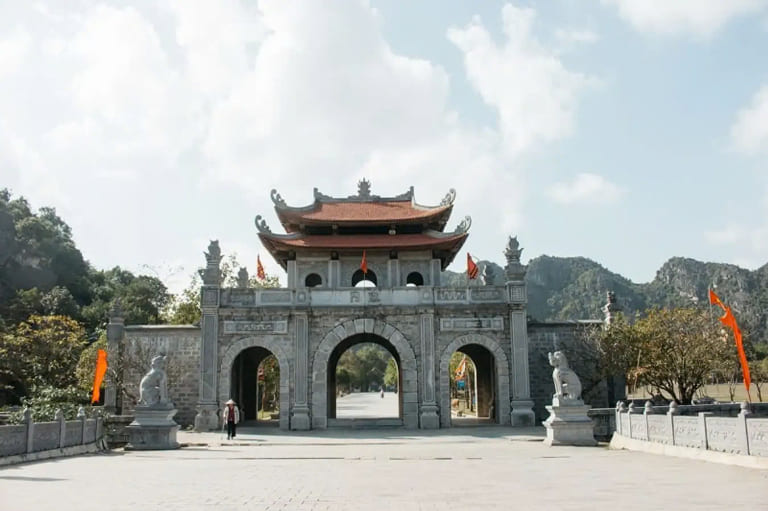
Hoa Lu’s architectural collection consists of ancient walls, tombs, temples, and palaces placed against a backdrop of rugged mountains, therefore giving the site a grand and amazing appearance. Built in the 17th century, the temples honoring King Dinh and King Le stand among the noteworthy constructions. Still a monument to the skill of old Vietnamese artists, the intricate wood and stone carvings were created totally without modern tools.
Bai Dinh Pagoda – The Spiritual Highlight of Trang An
Bai Dinh Pagoda radiates peace and mystery from her upland position surrounded by limestone mountains and lakes. Renowned Buddhist site with architectural wonders including Phap Chu Hall, Quan Am Hall, the Bell Tower, and the La Han Corridor this pagoda is connected to the fable monk Nguyen Minh Khong.
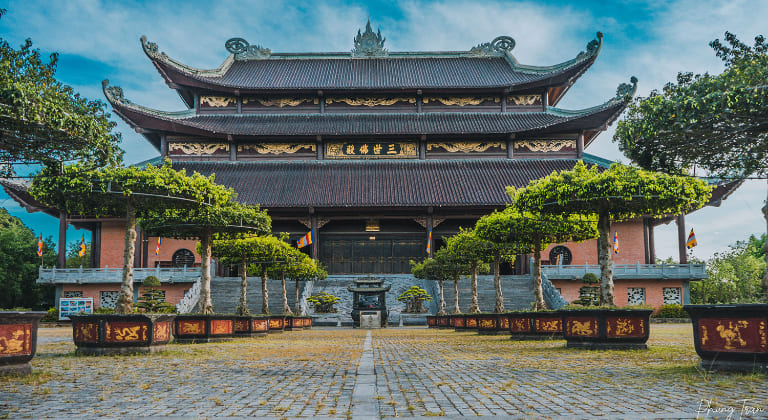
One of Trang An’s biggest celebrations takes place at Bai Dinh Pagoda as too. The Bai Dinh Pagoda Festival draws big numbers every year on the sixth day of the lunar New Year, particularly Buddhist pilgrims who come to pray, sightsee, and honor peace.
Thung Nang (Sun Valley)
Thung Nang, a calm and quiet valley with glistening clean water and a rich ecosystem, is situated in Dam Khe hamlet. Accessible only by boat, the 3-kilometer path winds tourists along where they may see far-off traditional house views, reeds, and rich riverfront greenery. At the end of the road, guests find themselves in a serene, unspoiled environment of lush rice fields and breathtaking mountain vistas.
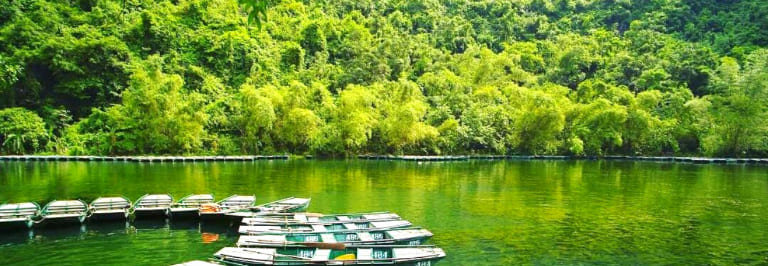
Thung Nham Bird Park
Thung Nham Bird Park, which is at the center of the Trang An Complex, boasts a diverse ecology of more than 577 species of high-level plants, including ten endangered species noted in the Red Book. From glittering stalactites in the caves to energetic birds filling the trees, visitors are exposed to breathtaking natural landscapes that create an ideal environment.
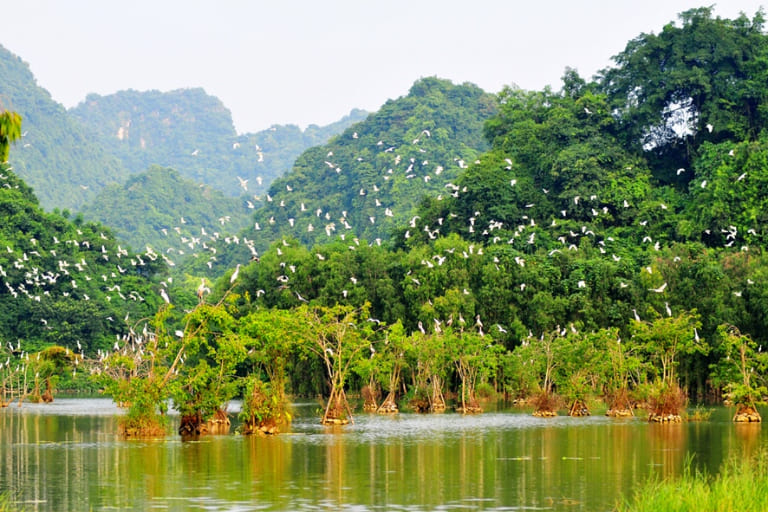
The Thuy Cung Cave, Tien Ca Cave, and Ba Co Cave—where nature and history cohabit exquisitely—are among the cultural sites located here as well.
Thien Ha Cave
Thien Ha Cave, tucked away on Tuong Mountain, is a secret treasure with amazing stalactites combining dry and wet cavernues. The wet cave can only be reached by boat on an underground river; the dry cave stretches roughly forty meters and features unusual stalactites. Called “Galaxy Cave,” its exquisite stalactites and meandering water flow create a picture of a glittering Milky Way.
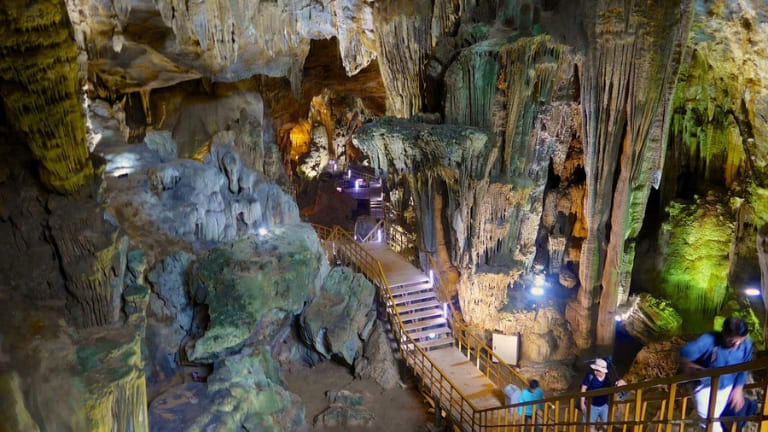
Mua Cave
Rising as one of Ninh Binh’s most sought-after attractions lately, Mua Cave boasts untouched scenery and a magical aura. The place mesmerizes guests with its breathtaking views of gray limestone cliffs and glistening clean waters.
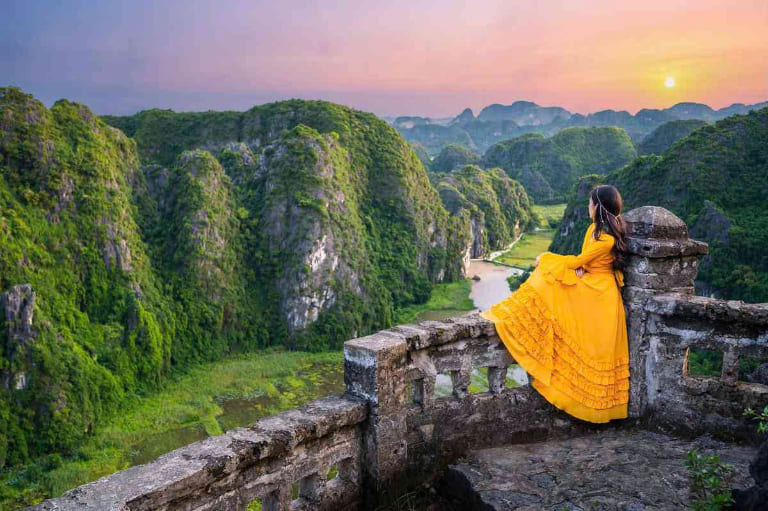
Vu Lam Imperial Palace
Originally a military camp during the Tran dynasty, Vu Lam Imperial Palace was a strategic hideout that has since joined the Trang An Scenic Complex. Surrounded by mountains and cavernues, it boasts various historical artefacts kept in a calm natural environment that provide guests with a window into Vietnam’s rich past.
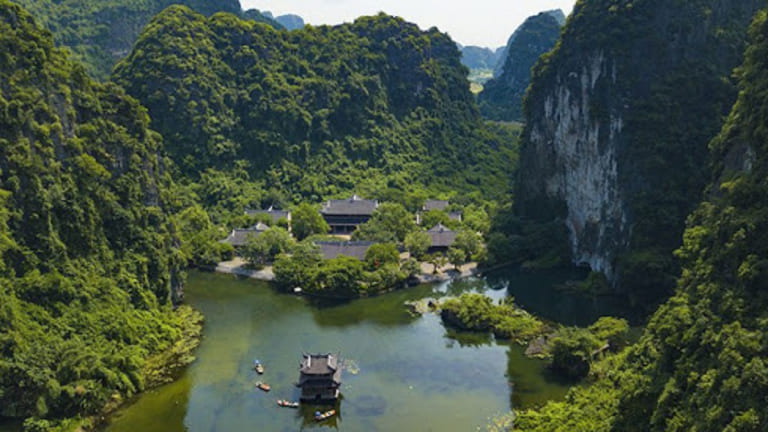
Popular Local Dishes in Trang An
Goat Meat
Goat meat, particularly “de nui,” or mountain goat, is one of Trang An’s characteristic foods; the goats’ diet of indigenous herbs makes the meat delicate and tasty. Usually grilled or steamed, the beef is presented with a side of dipping sauce created from local spices like ginger, lemongrass, and other herbs. For adventurous foodies, goat meat here has a unique taste unlike anywhere else in Vietnam and must-try.
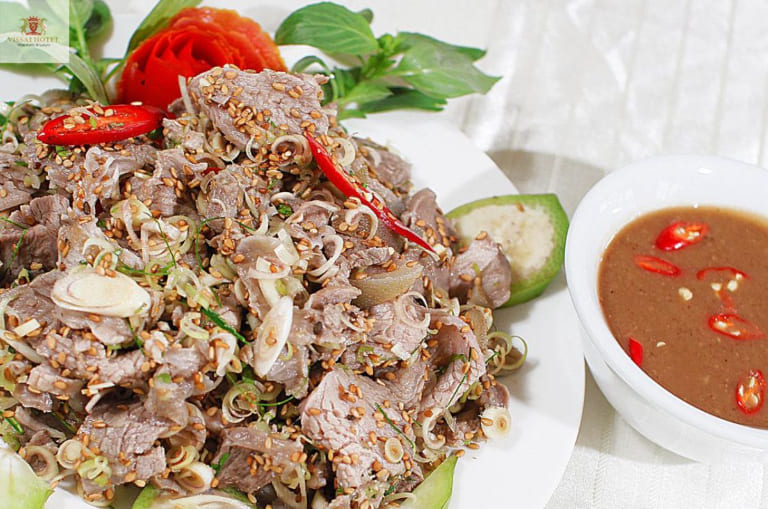
Burned Rice
Another local specialty is com chay, sometimes called scorched or crispy rice. This meal calls for rice cooked till golden and crunchy, then topped savory with minced pork, mushrooms, and scallions. Perfect with many Trang An dishes, it’s a snack as well as a side dish.
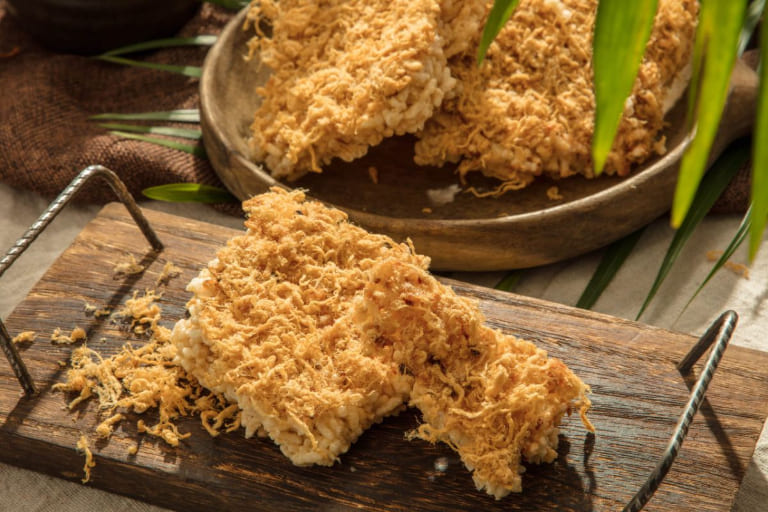
Eel Vermicelli
Made with soft eel, vermicelli, sometimes known as “mien luon, is a tasty soup meal seasoned with turmeric, pepper, and herbs using a fragrant broth heated. The meal is a local favorite especially for breakfast or lunch because of its light, delicious taste.
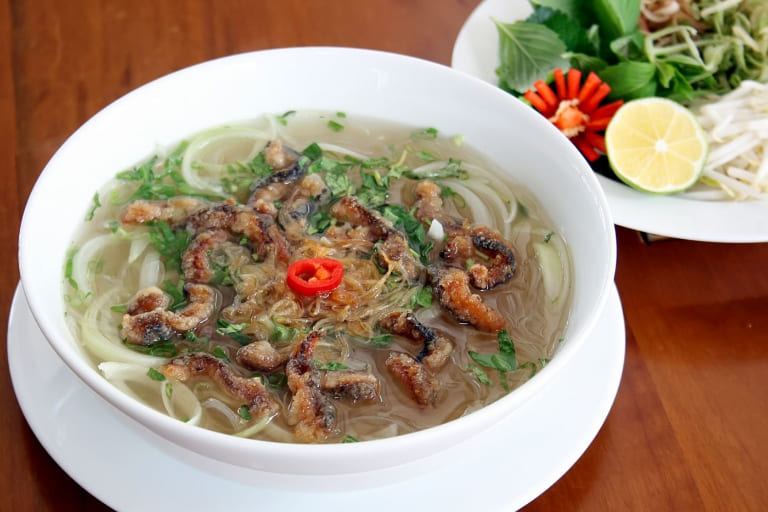
Mountain Snail
Trang An boasts a seasonal delicacy called “oc nui,” mountain snails. Harvested from the stony karst environments, these snails are stir-fried with herbs, chile, and lemongrass most usually. Foodies looking for something unusual will find them a delight with their earthy taste and soft texture.
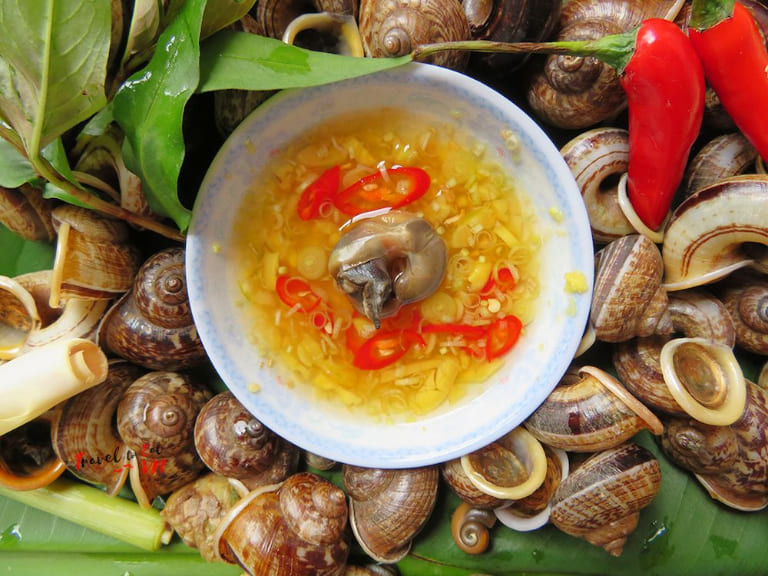
Trang An Landscape Complex offers an experience combining spirituality, history, and nature. From calm boat trips over limestone grottos to the spiritual aura of Bai Dinh Pagoda, Trang An provides a singular insight into Vietnam’s natural and cultural legacy.
Related Posts:
- Explore Ha Long Bay: Vietnam’s Natural Wonder
- Phong Nha – Ke Bang National Park: A Complete Guide to the World’s Best Cave
- Hoi An Old Town: Explore the UNESCO Heritage Gem of Vietnam
- Explore My Son Sanctuary: A Sacred Ancient Temple Complex in Vietnam
- Complex of Hue Monuments: A UNESCO World Heritage Site in Vietnam








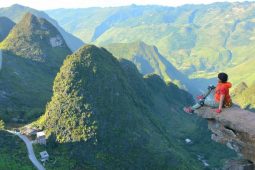
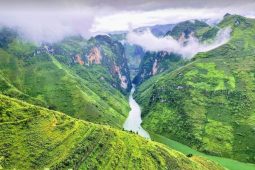
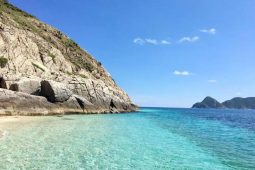
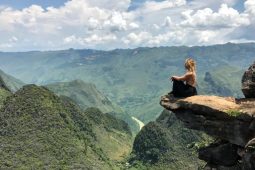
Be the first to comment!